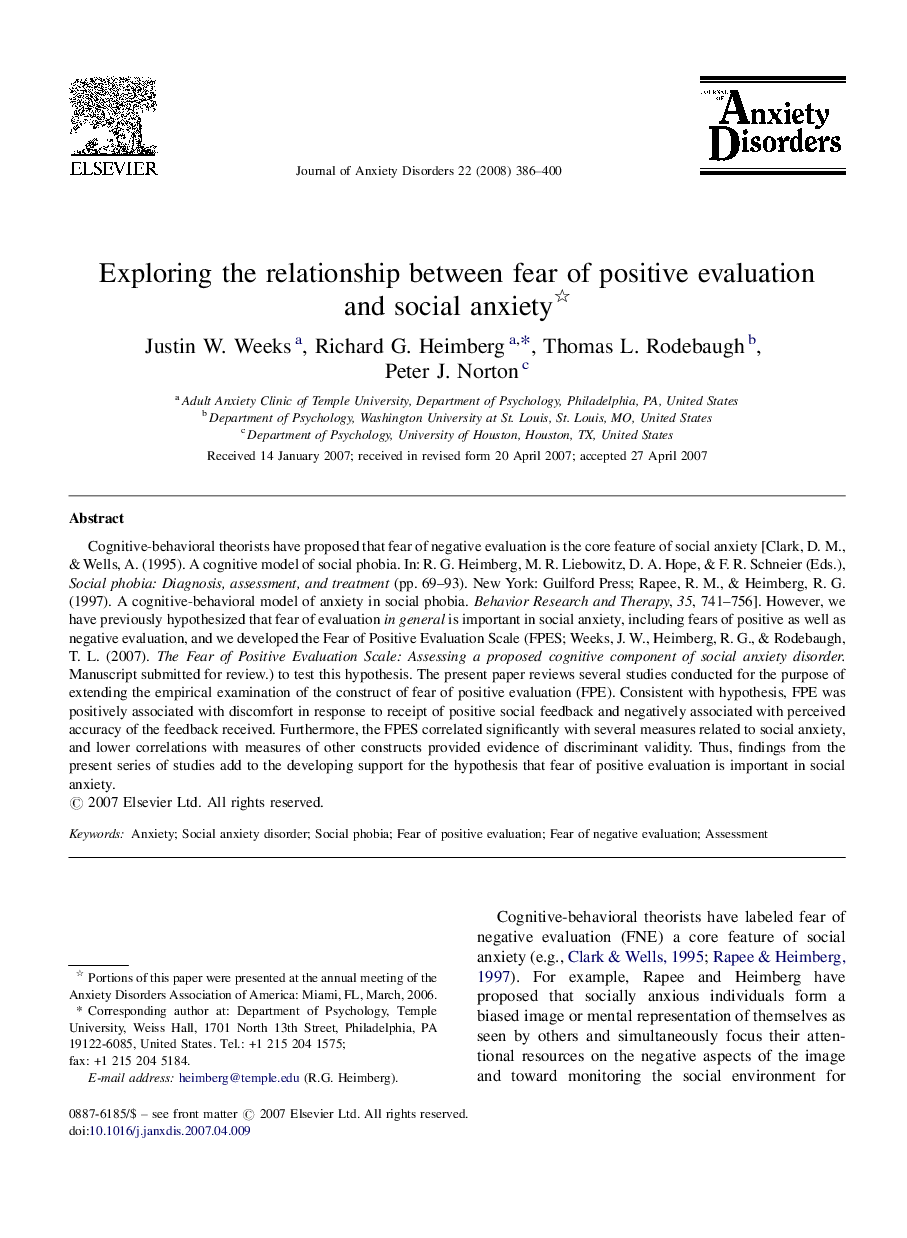| Article ID | Journal | Published Year | Pages | File Type |
|---|---|---|---|---|
| 909748 | Journal of Anxiety Disorders | 2008 | 15 Pages |
Cognitive-behavioral theorists have proposed that fear of negative evaluation is the core feature of social anxiety [Clark, D. M., & Wells, A. (1995). A cognitive model of social phobia. In: R. G. Heimberg, M. R. Liebowitz, D. A. Hope, & F. R. Schneier (Eds.), Social phobia: Diagnosis, assessment, and treatment (pp. 69–93). New York: Guilford Press; Rapee, R. M., & Heimberg, R. G. (1997). A cognitive-behavioral model of anxiety in social phobia. Behavior Research and Therapy, 35, 741–756]. However, we have previously hypothesized that fear of evaluation in general is important in social anxiety, including fears of positive as well as negative evaluation, and we developed the Fear of Positive Evaluation Scale (FPES; Weeks, J. W., Heimberg, R. G., & Rodebaugh, T. L. (2007). The Fear of Positive Evaluation Scale: Assessing a proposed cognitive component of social anxiety disorder. Manuscript submitted for review.) to test this hypothesis. The present paper reviews several studies conducted for the purpose of extending the empirical examination of the construct of fear of positive evaluation (FPE). Consistent with hypothesis, FPE was positively associated with discomfort in response to receipt of positive social feedback and negatively associated with perceived accuracy of the feedback received. Furthermore, the FPES correlated significantly with several measures related to social anxiety, and lower correlations with measures of other constructs provided evidence of discriminant validity. Thus, findings from the present series of studies add to the developing support for the hypothesis that fear of positive evaluation is important in social anxiety.
